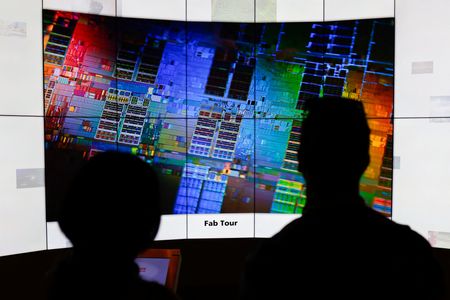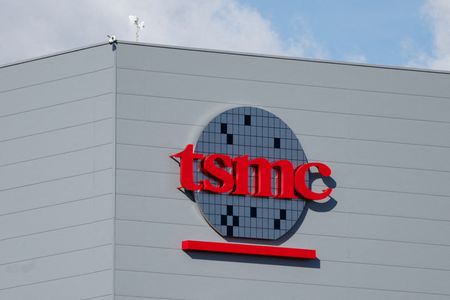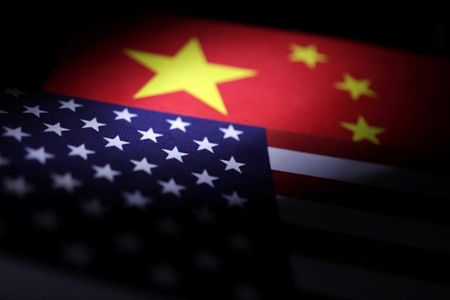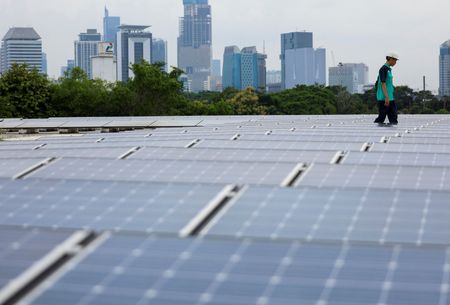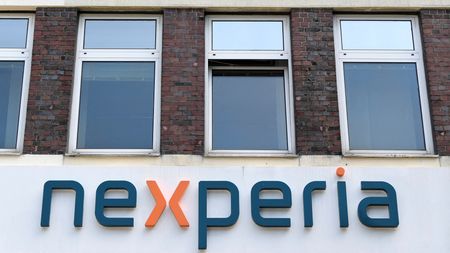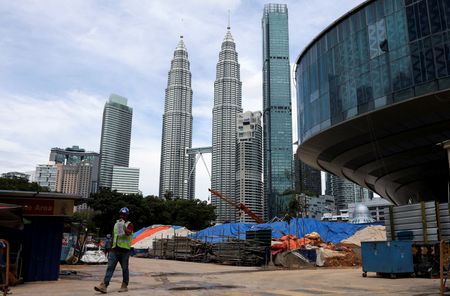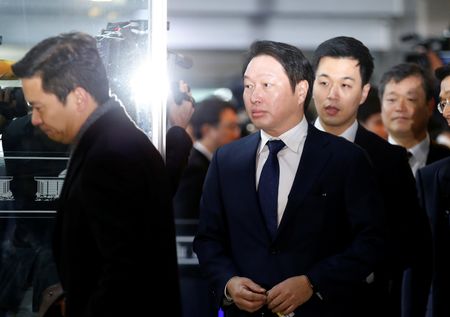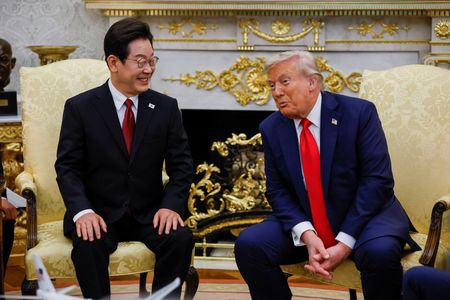By Wen-Yee Lee, Faith Hung and Ben Blanchard
TAIPEI (Reuters) -TSMC, the world’s biggest producer of advanced chips, raised its full-year revenue forecast on Thursday on a bullish outlook for spending on artificial intelligence, after posting a record profit that blew past market estimates.
The strong results underscore the continued faith in AI, brushing off at least for now concerns about a bubble.
TSMC said it expects robust artificial intelligence demand to continue, as it raised its 2025 revenue guidance to mid-30% growth in U.S. dollar terms from around 30%, and maintained its forecast for capital spending at up to $42 billion for 2025.
“AI demand actually continues to be very strong – more strong than we thought three months ago,” CEO C.C. Wei told an earnings call.
“We are also happy to see continuous strong outlook from our customers,” he added.
“In addition, we directly receive very strong signals from our customers’ customers requesting the capacity to support their business. Thus, our conviction in the AI megatrend is strengthening.”
There has been a flurry of mega deals between AI firms and chipmakers, notably by OpenAI with Nvidia, Advanced Micro Devices and Broadcom, in the past month or so to build $1 trillion or more in data centre capacity.
That portends more demand for chips, which make up a significant portion of the cost of the data centres.
Nvidia, AMD and Broadcom all rely on TSMC for chip production.
The multi-billion dollar investment announcements have raised concerns about the formation of a bubble reminiscent of the dotcom boom and bust, with securities investors on guard for signals that demand is tailing off or that the massive spending is not paying off as anticipated.
Recent company announcements indicate demand is resilient.
The head of Australia’s Macquarie Asset Management (MAM), which sold its Aligned Data Centers business in a deal worth $40 billion, said on Thursday the sale was not a sign the global data centre boom had peaked, while ABB’s big increase in orders in the United States during the third quarter was due to demand from areas like data centres being built for AI.
PROFIT BEATS ESTIMATES
Taiwan Semiconductor Manufacturing Co, whose customers also include iPhone maker Apple, posted a 39.1% jump in third-quarter net profit and said it would be prudent in its business planning going into 2026.
Benefiting from surging demand for advanced chips used in AI applications, TSMC said net profit for July-September climbed to T$452.3 billion ($14.76 billion).
That was well ahead of a T$417.7 billion LSEG SmartEstimate drawn from 20 analysts. SmartEstimates are weighted toward forecasts from analysts who are more consistently accurate.
“We are still very comfortable that the demand on leading-edge semiconductors is real. And as I continue to say that we look at all the demand and look at our capacity expansion, TSMC needs to work very hard to narrow the gap,” Wei said, referring to supply and demand.
Trump’s trade policies and threats to put tariffs on semiconductors have created uncertainty for the global chip industry and TSMC.
Still, Wei said even if the China market was “not available” to the company because of U.S. restrictions, then “I still think the AI’s growth will be very dramatic”.
TSMC announced plans for a $100 billion U.S. investment with Trump at the White House in March, on top of $65 billion pledged for three plants in the state of Arizona, one of which is up and running.
On Wednesday, top semiconductor equipment maker ASML, for which TSMC is a major customer, said third-quarter bookings beat market forecasts but that it expected a significant fall in demand from China next year.
Samsung Electronics said on Tuesday it expected its biggest quarterly profit in over three years, also thanks to the AI boom.
Taiwan-listed shares in TSMC have risen 38% so far this year, largely brushing off concerns about tariffs, and ahead of the 20% rise for the broader market.
($1 = 30.6450 Taiwan dollars)
(Reporting by Wen-Yee Lee, Faith Hung and Ben Blanchard; Editing by Christopher Cushing and Muralikumar Anantharaman)

